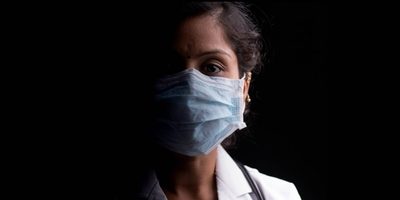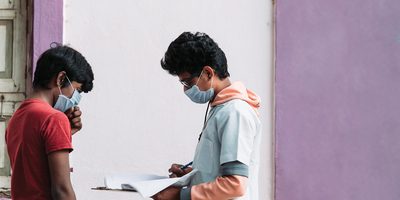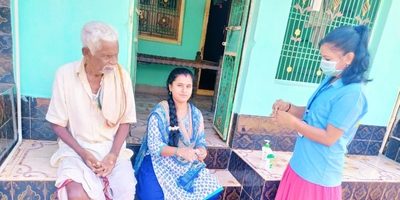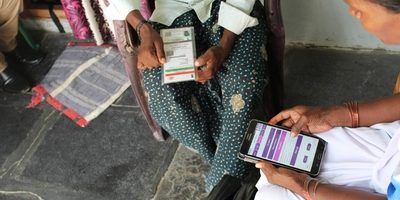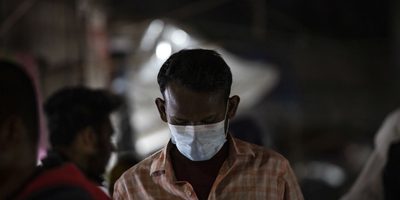
Masking the unmasked - Protecting Front-line health workers during the COVID 2019 pandemic
The George Institute for Global Health, India in its recent rapid evidence synthesis has pointed out that the Frontline Healthcare Workers are at increased risk during COVID-19 even in the course of their normal activities and should be provided with personal protective equipment. The World Health Organisation also has outlined a series of basic protective measures for the frontline health care workers (FLHW) who are at the forefront of fighting the COVID-19 pandemic. This includes protecting oneself and those who come into close contact with others in the community as well.
However, masks and other personal protective equipment are in short supply in many rural and urban parts of the country and this may put the work of FLHWs at great risk especially when they come into contact with community members. Many frontline health workers confirm this from ground zero. Though this is largely anecdotal, it still underscores the need for the government to be prepared for providing adequate PPE to the FLHWs, a recommendation which the rapid evidence synthesis makes.
“While working with communities in and around Ballabgarh in Haryana, we noticed that none of the field staff or ASHA worker in the villages had medical masks. It is also not available in local pharmacies,” said Amanpreet Kaur, Research Fellow, The George Institute India, adding the field staff told her that there were few places where they found medical masks, but prices were too high (five times the original price), and the same goes for sanitizers (4-5 times higher price than original).
The situation seems to be no better in villages in and around Palasa in Andhra Pradesh.
“No masks are available in shops and even in the community health centre in Palasa, there seems to be a shortage of masks and aprons,” said Dr Balaji Gummidi, Senior Project Manager, George Institute for Global Health, India who leads a project in Uddanam area of Srikakulam district.
The local administration is aware of the fact that there is scarcity of PPE, he adds.
A similar situation is seen in Vijayawada or in Rohtak.
“It is really heartening to note that the Ministry of Health and family Welfare has come up with guidelines on PPE. We hope that this will ensure that basic personal protective equipment like masks or hand gloves are available in sufficient numbers for the frontline health workers or the health care providers during this hour of crisis,” says Prof Vivekanand Jha, Executive Director, The George Institute India.
The recently conducted rapid evidence synthesis by a team of researchers from the George Institute India has revealed that FLHWs will be at increased risk of COVID-19 even in the course of normal activities.
“My observation, based on short visits, is consistent with this finding. I can’t but agree with the recommendation that the availability of these life-saving items should be accompanied by training on proper usage in the early phases,” said Amanpreet
These finding acquire an urgent tone, since frontline health care are the backbone of our health activities and cannot practice physical distancing because of the nature of their jobs. It becomes a responsibility of the healthcare system to provide them with appropriate and adequate protection.




